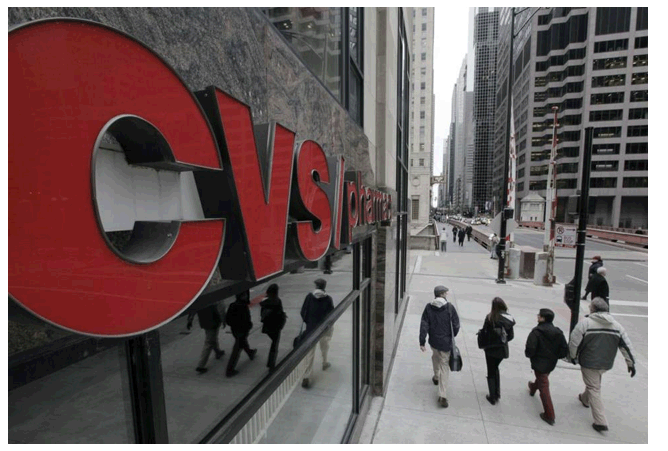| |
Harvard Pilgrim negotiates discount on pricey hepatitis drug
|
| |
| |
http://www.bostonglobe.com/business/2015/01/29/harvard-pilgrim-becomes-first-regional-health-insurer-negotiate-discount-hepatitis-drugs/cHGccEiJT8NDTnKqpTejfP/story.html

Associated Press/file 2012
CVS/Caremark reached a deal with Gilead Sciences this month for rebates on its Harvoni drug for hepatitis C patients.
By Robert Weisman Globe Staff January 29, 2015
Harvard Pilgrim Health Care has become the first regional health insurer to negotiate a discount on a costly new hepatitis C drug regimen that cures more than 90 percent of people with the virus but inflicts steep financial losses on payers.
Under a one-year contract with Gilead Sciences Inc., maker of the two-drug Harvoni treatment for the liver-ravaging disease, Wellesley-based Harvard Pilgrim expects to save about $10 million on reimbursements to doctors who treat hepatitis C patients. The insurer didn't disclose how much it will pay for the drug after a rebate from Gilead.
Harvard Pilgrim followed the lead of national pharmacy benefit managers such as CVS/Caremark and Express Scripts, which buy prescription drugs in bulk. Taking advantage of a rival hepatitis C drug combination from AbbVie Inc., those companies recently bargained with both drug makers to secure rebates.
"The whole hepatitis C thing has been a shock to the system," said Michael Sherman, chief medical officer at Harvard Pilgrim, who added that both Gilead and AbbVie offered discounts. "We've never had a drug that impacts this many people at such a high cost. It would be unconscionable for us to deny these drugs to people who have very serious liver disease. So we had been paying a very high price for the drugs and absorbing the cost."
Both the Harvoni regimen and AbbVie's three-drug combination called Viekira Pak are part of a new class of all-oral hepatitis C therapies that are more effective and cause fewer side effects than an earlier generation of drugs from Merck & Co. and Boston's Vertex Pharmaceuticals Inc. Gilead was first to market in the new class with its drug Sovaldi, which won approval late in 2013 and was priced at $1,000 a pill or $84,000 for a full treatment course.
While it initially was prescribed in combination with an injectable drug, Sovaldi has since been co-formulated with another medicine into a single pill known as Harvoni, which got the OK from the Food and Drug Administration last fall. Gilead priced it at $94,500 for a 12-week regimen. AbbVie's Viekira Pak, approved shortly after, was listed at $83,319 for 12 weeks of treatment.
But having two competing drugs enter the market at the same time has created an opening for payers that had been blindsided by the surge of patients steered by doctors toward Sovaldi. Physicians for years had been holding off prescribing hepatitis C treatments until the groundbreaking pill came onto the market.
"It was a surprise," said Jon Kingsdale, a managing partner at the Wakely Consulting Group in Boston. "These hep C treatments were unusual because [insurers] hadn't budgeted for them. But now there's competition. This certainly isn't the first time when health plans have played these name-brand expensive drugs off one another."
Gilead spokeswoman Cara Miller said payers in all states are currently reviewing their coverage of the new Harvoni regimen. "Gilead does participate in supplemental rebate programs for our products," she said, but she declined to discuss Harvard Pilgrim's rebate.
Unlike other regional health insurers that contract with pharmacy benefit managers to bargain with drug companies on prescription drug prices, Harvard Pilgrim - which has more than 1 million members in Massachusetts, New Hampshire, and Maine - negotiates its own rebates.
Harvard Pilgrim spent over $25 million on hepatitis C treatments for more than 300 members in 2014, the first full year Sovaldi was on the market. Even with Gilead's rebate, the insurer projects its hepatitis C reimbursements will climb 30 to 50 percent this year.
Costs have been even higher for other insurers, particularly the Medicaid managed care plans covering many low-income residents who have gravitated to the new hepatitis C drugs.
In Massachusetts, those insurers lost tens of millions of dollars last year as a result of unanticipated Sovaldi claims. While many of their members continue to take hepatitis C medicines, the Medicaid managed care plans are working with pharmacy benefits managers that are negotiating bulk discounts on Harvoni, Viekira Pak, and other drugs.
Pharmacy benefits manager Express Scripts struck the first blow against lofty hepatitis C drug prices last month when it signed an exclusive agreement to buy Viekira Pak at a discount from AbbVie. The deal helped establish the AbbVie regimen - which includes a drug co-developed by Enanta Pharmaceuticals Inc. of Watertown - as a Gilead competitor.
Earlier this month, however, CVS/Caremark, another large pharmacy benefits manager, reached its own agreement to buy Harvoni with a rebate from Gilead.
Sherman at Harvard Pilgrim said AbbVie would have given the Massachusetts insurer a deeper discount than Gilead. But the insurer chose the Harvoni regimen because it involves most patients taking just one pill a day compared to six in the Viekira Pak regimen, he said. He said the AbbVie combo also may have more potential side effects when interacting with other drugs.
"There may be a small group of our members - we think it will be 5 percent or less - for which the AbbVie regimen will be more effective, and they will be able to get that drug," Sherman said. "We won't get a discount, but they'll be able to get the drug."
|
|
| |
| |
|
|
|